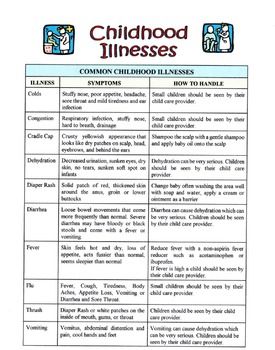
Childhood is a time of growth, exploration, and sometimes, illness. As parents, it can be distressing to see our little ones unwell, but many common childhood illnesses can be treated at home with simple remedies. In this article, we will discuss some of these illnesses and provide suggestions for natural home remedies.
Cold and Flu
Cold and flu are among the most common illnesses that children experience. Symptoms typically include a runny or blocked nose, sore throat, cough, fever, and fatigue. To alleviate these symptoms, you can try the following:
Encourage plenty of rest and sleep to aid in the healing process.
Make sure your child stays hydrated by offering them fluids such as water, warm herbal tea, or clear broth.
Nasal congestion can be relieved by using a saline nasal spray or drops. These help to thin the mucus and clear the nasal passages.
For a sore throat, warm saltwater gargles can provide relief. Mix half a teaspoon of salt in a glass of warm water and have your child gargle with it.
A humidifier or cool mist vaporizer in your child’s room can help ease congestion and soothe their breathing.
Ear Infections
Ear infections, also known as otitis media, are common in young children. They can be quite painful and may cause symptoms such as earache, fever, and difficulty hearing. Here are some home remedies to help alleviate ear infections:
Apply a warm compress to the affected ear for 10-15 minutes, several times a day. The warmth can help relieve pain and reduce inflammation.
Encourage your child to chew gum or eat hard candies (if they are old enough) to promote swallowing and open up the Eustachian tubes, which can aid in draining the fluid.
Garlic oil is a natural remedy that can be used to relieve pain caused by ear infections. Warm a few drops of garlic oil and gently place them in the affected ear.
Probiotics, whether in the form of supplements or probiotic-rich foods like yogurt, can help boost the immune system and prevent recurrent ear infections.
Upset Stomach and Diarrhea
Children often experience stomach upsets and diarrhea due to various reasons, such as viral infections or food intolerances. To help ease their discomfort and promote recovery, you can try the following remedies:
Encourage your child to drink plenty of fluids to prevent dehydration. Electrolyte solutions or oral rehydration solutions are especially beneficial in replacing lost fluids and electrolytes.
Introduce the BRAT diet (bananas, rice, applesauce, and toast) to help bind stools and provide easily digestible foods.
Probiotics can also be beneficial for restoring the healthy gut flora and reducing the duration of diarrhea.
A warm compress or hot water bottle placed on the child’s stomach can help alleviate cramps and discomfort.
Chickenpox
Chickenpox is a highly contagious viral infection that typically affects children. It causes itchy, red rashes and can be accompanied by fever, headache, and fatigue. While the infection usually resolves on its own, home remedies can provide relief from symptoms:
Applying calamine lotion can help soothe the itchy rashes and reduce discomfort.
Baking soda baths can alleviate itching. Add a cup of baking soda to a lukewarm bath and let your child soak in it for 10-15 minutes.
Offer foods that are soft and easy to swallow, as chickenpox sores can also appear in the mouth.
Ensure your child wears loose clothing made of natural fibers to prevent irritation of the skin.
Conclusion
While these home remedies can help manage common childhood illnesses, it is important to remember that if your child’s condition worsens or they develop severe symptoms, it is advisable to seek medical attention. Additionally, always consult with a healthcare professional before administering any remedies to ensure they are suitable for your child’s specific situation.
By being prepared and knowledgeable about these common childhood illnesses and their remedies, you can provide comfort and support to your little ones during times of sickness, helping them recover faster and get back to their active and playful selves.

